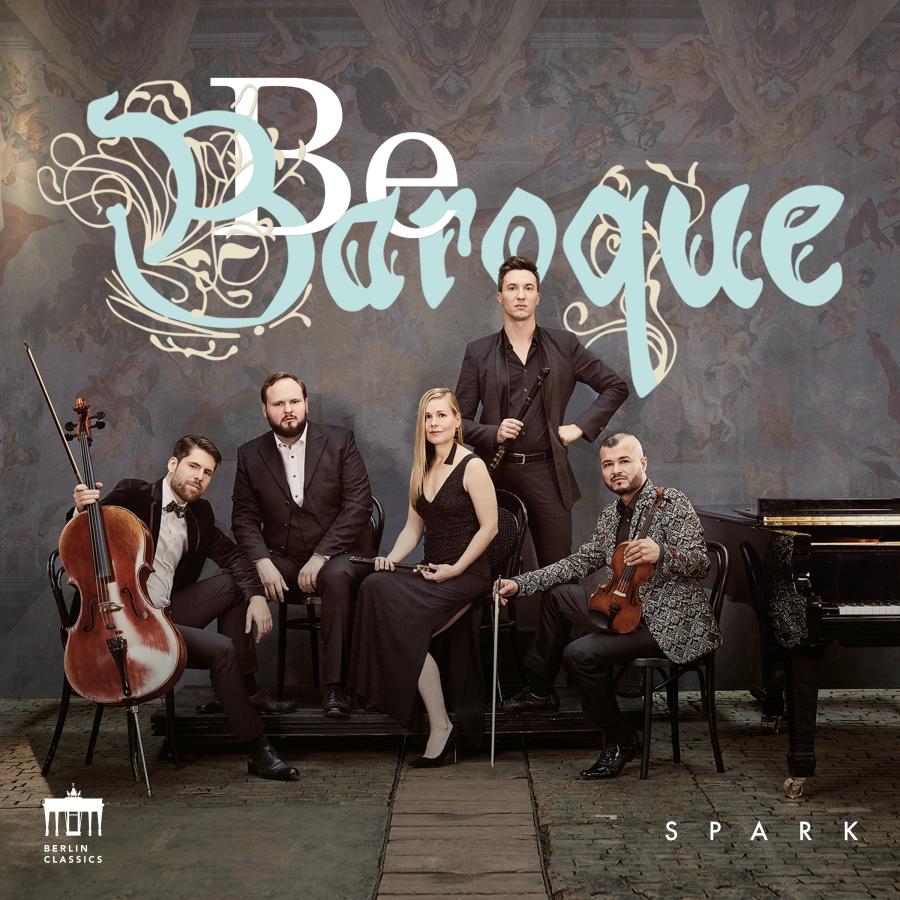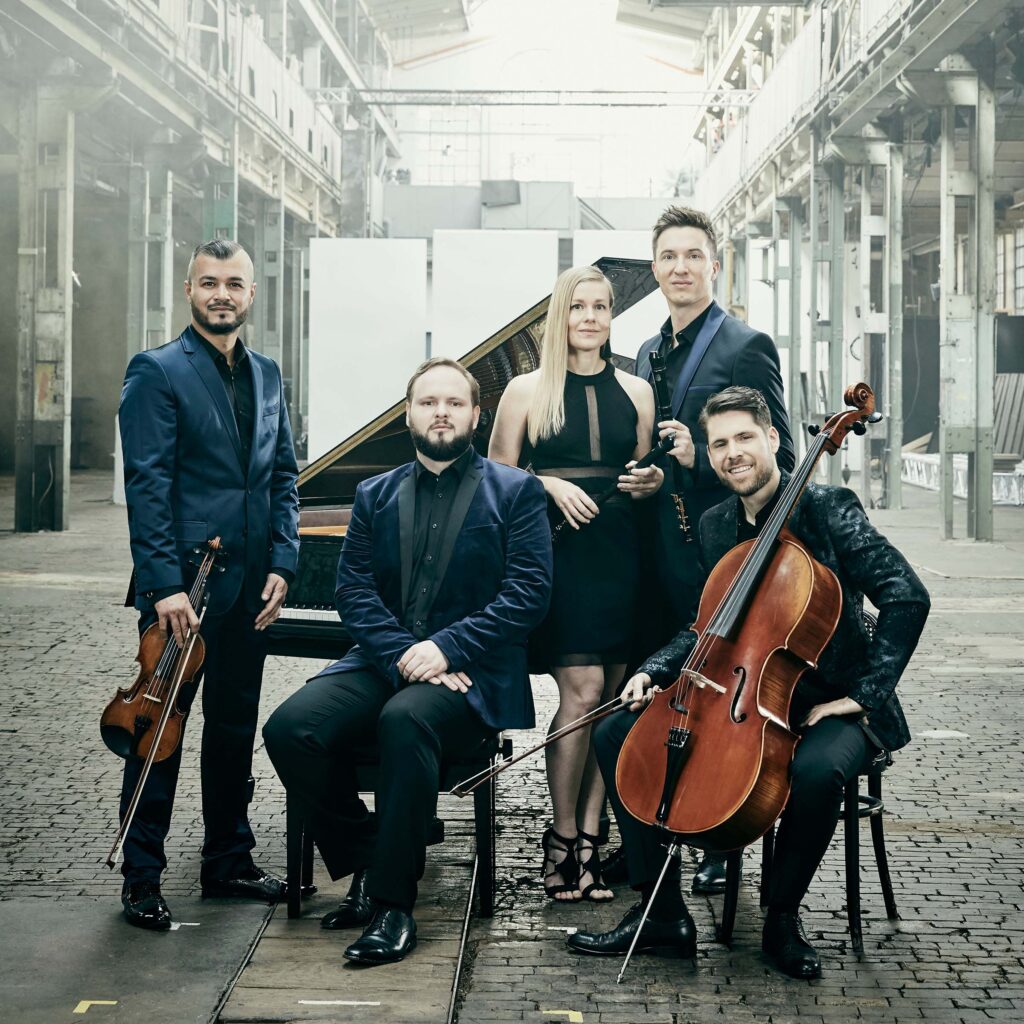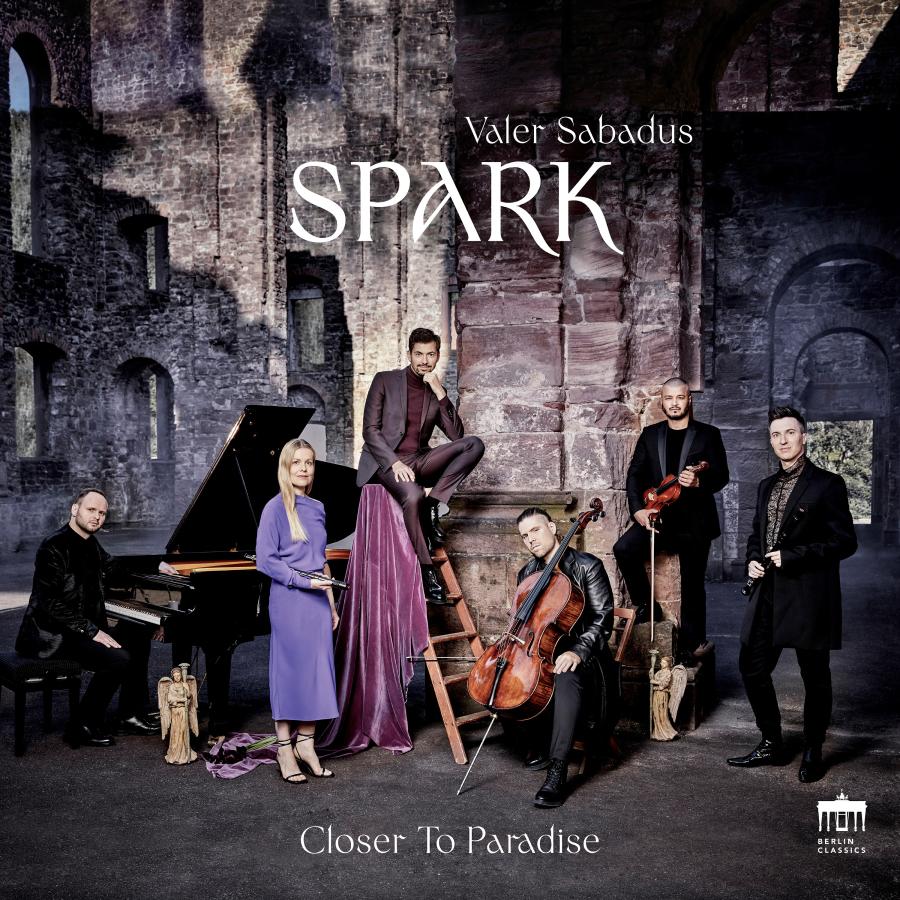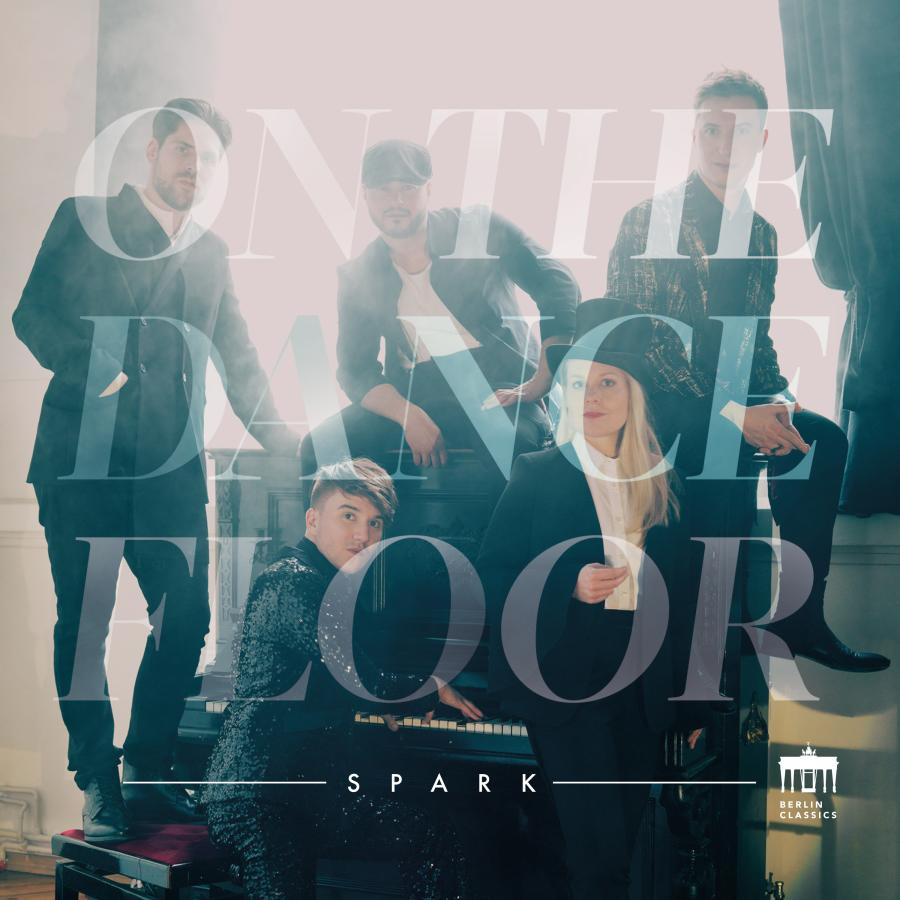Be Bold /
Spark plays Baroque music. That sounds simple, but is in fact highly complex. That’s because when an ensemble like Spark approaches a past era, that can only come about with a fresh new perspective, bold reorientation and lots of delight in experimentation. It is not for nothing that the ECHO Klassik prizewinning formation enjoys a reputation for blending the old and the new, tradition and innovation, the familiar and the unheard-of in a unique manner. Consequently, on their upcoming release “BE BAROQUE” the five exceptional musicians are not interested in simply arranging Baroque works for their formation. On the contrary: in their new arrangements they aim to highlight new aspects, intensify moods and awaken unforeseen associations. Baroque manners are assimilated, spun and transformed into the musical language of the 21st century. Based on a number of masterworks by Bach, Vivaldi, Handel and others, Spark creates its very own Baroque tableau whose colour spectrum ranges from almost true-to-the-original reproduction through to a completely new composition.
Be Adventurous //
Nearly all the arrangements, new settings and compositions on the CD were written by the members of Spark themselves, emphasising the ensemble’s quest for its very own creatively inventive tonal language. In stylistically very different arrangements the five musicians skilfully exploit their formation’s strengths. From one piece to the next they reveal new mood images to their listeners: Bach becomes a calm, playful sound idyll, Graupner a heroically pulsating perpetuum mobile, Couperin transforms into a hovering ambient cloud formation and Handel into virtuoso, lively minimalist music. Spark aficionados will be surprised at the classical band’s uncharacteristically calm approach. They take their time, savouring the music, lingering in an atmosphere and inviting the listener to really allow a certain mood to take hold, and to merge with it. Thus the album title – Be Baroque! – reveals a deeper, underlying significance. The musicians not only wish to be “baroque” themselves and to savour that state with the full spectrum of their artistic skills; they are encouraging their listeners to join them in this Baroque ambience, to dive head-first into these sounds and to succumb to them.
Be Real ///
Despite the artistic desire for freedom, this is not music-making on a whim or just for the hell of it. With Spark, nothing is an end in itself or merely about showmanship. On the contrary, the works performed here are the result of an intensive analysis of the original work, and engagement with its composer as well as with the Baroque era as a whole. In all this, the band benefits from the know-how of its flautists, Andrea Ritter and Daniel Koschitzki, who before their time with Spark were for many years members of the renowned Amsterdam Loeki Stardust Quartet. As members of this highly acclaimed ensemble on the Early Music scene, they took historically informed playing in their stride. The establishment of Spark reflects their curiosity and passion for sounds linked to a twenty-first-century attitude to life. The appeal of this CD rests therefore in the “teasing play” technique they have adopted, derived straight from authentic Baroque elements, a Romantic Sturm und Drang style and a modern zeitgeist. One minute we are marvelling at the accomplished accuracy of a Baroque ornament, the next we are basking in the nonchalance that has consciously cast off Baroque role models and catapulted us into the here and now.
Be Original ////
Johann Sebastian Bach’s music serves as an important source of inspiration on this album. Spark presents its own version of the famous aria “Sheep may safely graze”, performs excerpts from his Orchestral Suite in B minor in an original arrangement by Gustav Mahler, and in the composition entitled “Neo Largo” by Spark pianist Christian Fritz presents a charming paraphrase on the famous middle movement of Bach’s F minor Concerto for harpsichord, strings and basso continuo. Victor Plumettaz, the band’s cellist, chooses the D Minor Sarabande by George Frideric Handel and a Prelude by Christoph Graupner as the basis for two new works. He expands the harmonic progression of the originals using new melodies and accompanying figures to create independent, minimalistic pieces – at turns flowing calmly, then pulsating wildly, and above all tailor-made for the Spark formation. Spark flautist Daniel Koschitzki takes a similar approach. Based on the harmonic pattern of a rondeau by Jacques Duphly, he has conceived an opulent Ballade for Spark. His flute-playing colleague Andrea Ritter presents various levels of adaptation in three compositions. In an arrangement of the middle movement from Antonio Vivaldi’s Concerto “Il gardellino” she leaves the solo flute melody as in the original, while highlighting it from a different angle by means of new accompaniment elements and intricate polyrhythmic layers. She then takes a much more liberal approach with George Frideric Handel’s “Arrival of the Queen of Sheba” and François Couperin’s “Les Barricades Mystérieuses”,which she augments with some original material of her own, creating independent, multi-timbred works – the former in the spirit of American minimal music, the latter evincing the flair of an ambient piece. Spark then brings in a different nuance altogether in the folkloristically coloured tune “Mrs. Keel” by the Irish Baroque composer Turlough O’Carolan. The interpretation of the work, which the band first performed in a private concert for Germany’s Federal President, places it consciously in the electrifying space between Irish Folk, reduced Romantic music and Baroque ornamentation.
Be Questioning /////
Baroque originals, arrangements, resettings and their own compositions all come together in this, the classical band’s sixth album, to form a fresh moral portrait of a bygone era. Every track on the album throws light on one or other aspect of Baroque culture through the prism of the arranger or composer in question and their individual materials – be it the exuberant vibrancy of Baroque dances, the power of symmetry, the enchanting beauty of Baroque cantilenas, the “teasing play” of conventional development mechanisms or the attraction of the broken triads that Vivaldi, Bach and their contemporaries employed – long before they again became en vogue as arpeggios in the fields of electro, pop or minimal music. With this project, Spark prove themselves yet again to be one of the most innovative ensembles of their generation – as an exciting collective of pioneers and visionaries, lateral thinkers and mavericks. The band consistently follows its vision of a thoroughly independent profile clearly referencing the musicians’ classical roots, but which is fundamentally projected forwards. Spark’s interpretations come over as more mature. The ensemble has truly found itself and at the same time not forgotten how to push boundaries, to go in search of something and to constantly be questioning things – with courage and a thirst for adventure that is thoroughly authentic and given to experimentation and insatiable curiosity!










